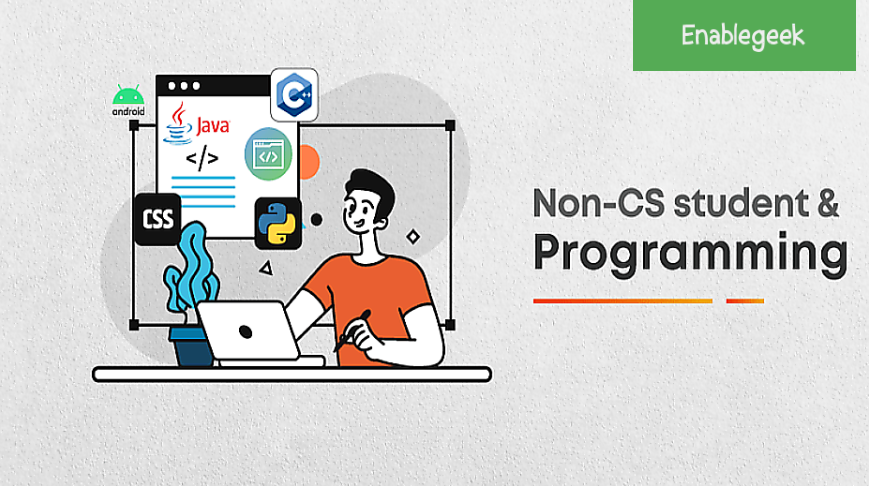In a world increasingly reliant on technology, the prospect of entering the tech industry might seem daunting without a Computer Science degree. But fear not! There’s a realm of tech jobs waiting for your skills, irrespective of your academic background. Let’s explore exciting opportunities that can launch your tech career without a Computer Science degree.
Embarking on a tech career doesn’t demand a traditional Computer Science degree. The landscape is vast, offering roles that cater to diverse skill sets. Discover how you can leverage your unique talents to secure fulfilling and well-paying positions in the tech industry.
The burning question on many minds: “How do I break into tech?” The demand for tech professionals has surged, propelling average salaries to record highs. The allure of a six-figure paycheck beckons, but the key revelation is that you don’t necessarily need a computer science degree to unlock these opportunities.
The answer resounds with certainty—YES, you can land a tech job without a degree in computer science! Dive into the possibilities as we uncover tech roles that welcome diverse backgrounds, proving that passion, skills, and determination can open doors to a rewarding career in the ever-evolving tech landscape.
Ready to unveil the myriad opportunities that tech offers beyond traditional paths? Let’s embark on this exciting journey together!
The Changing Face of Tech
Over the past few decades, the workplace has undergone a significant transformation, with the pace of change showing no signs of slowing down. Advances in technology have revolutionized the world of business, with wireless internet, email, smartphones, virtual video conferencing tools, and social networking sites like Facebook, Twitter, TripAdvisor, and Rotten Tomatoes growing at a phenomenal pace. This has given power back to people, and companies must adapt to this new world.

Customers are demanding better, faster, cheaper, and want to do more with less. Companies are also under increasing pressure to innovate, as the world is more complex and the fastest supercomputers cost more. Smartphones now generate almost twice the volume of mobile traffic to that of PCs, tablets, and routers, and are predicted to grow ten-fold by 2019.
To take advantage of this changing climate, companies will need vision, tenacity, and the ability to organize, execute, and change. PwC recently interviewed 1,322 chief executives from 77 countries, and more than half of them saw more opportunities today than three years ago. Despite the rapid pace of change, CEOs are seeing an underlying sense of optimism from CEOs. Those who survive and thrive will be the companies that think strategically and actively seek partnerships with a diverse mix of businesses, even their competitors, to gain access to new markets and technologies.

David Carder, an engagement leader with Kotter International, emphasizes the importance of emotional engagement in implementing change. He suggests that leaders should bring the company’s vision to life through stories, videos, and personal experiences. However, he believes many business leaders are overwhelmed by the pace of change and that the way companies are structured is becoming outdated. McKinsey’s Global Institute identified 12 potential technologies, such as robots with enhanced senses and self-driving cars, which could have a massive impact on the global economy between now and 2025. Some technologies have been in the making for years, while others are more surprising. The Internet of Things is expected to have huge effects on society and the economy, and the 7th Future of Wireless International Conference in London will discuss the technology revolution.
Opportunities in Product Management
Product Managers come from diverse backgrounds and bring a range of skills to the table. However, many people feel that learning new tech skills is an insurmountable challenge. Technical skills, such as programming languages like HTML, CSS, Javascript, C+, and Python, are universal across various industries. However, the tech landscape can make it seem inaccessible for those who don’t discover their passion for technology early in their careers.

Product Management is at the center of design, business, and technology, and if someone is skilled in any one of these three and has the willingness to learn the other two, there’s a Product Manager role for them. Product development is the process of building tech, so understanding and acquiring technical skills is not as out-of-reach as they first seem.
Some roles require a CS degree or demonstrable knowledge of the tech skills needed for the job. Technical Product Managers focus on the technical side of a product and work closely with an engineering team. Full Stack Product Managers have a little of everything needed to bring a product idea to life, including Marketing, Sales, Tech, Design, Business, Data, and Leadership.

A Product Manager’s relationship with their technical skillset is similar to their relationship with other skills, such as design and data. Understanding the tech they’re building is a surprisingly small part of the job, but the more knowledge they have, the better.
The problem with the perception of the tech industry is that it’s often seen as more complicated than it is. People’s apparent fear or apprehension of entering the tech industry is not due to the work itself, but rather the perception of the industry itself. Companies that offer technical work often have a strong focus on their core skills and openness to learning.
UX/UI Design in the Tech Industry
The UI/UX designing field is gaining popularity, with tech industries, colleges, and design communities organizing meetups and workshops. There’s no specific path, with many designers having engineering degrees, self-taught, and from diverse backgrounds. An IT engineer shares their journey.
The author shares their journey to becoming a UX/UI Designer, emphasizing the importance of researching the field and identifying skills. They mention that a background in design can greatly benefit a designer. They share their experience enrolling in Adobe Photoshop courses, creating digital art, applying for internships, and how their perspective changed from June to October 2020.

They learned about wireframing and prototyping tools during their internship and started contacting other designers and following tech news. They found inspiration from Designernews, Behance, and Dribble, and began designing various aspects of the field.
For those in the early stages of their career, they recommend pursuing an undergraduate degree in design or a Master’s in Human-Computer Interaction or Interaction design. They recommend enrolling in online courses and surrounding themselves with people with similar interests. They encourage sharing design ideas and asking for feedback.
The author emphasizes that there is no one-size-fits-all approach to success in a diverse industry. They encourage evaluating options and finding the path that works for them. They encourage being an autodidact and pushing creative limits daily. The author concludes by urging readers to move towards their goals and not stand still.
Thriving in Data Analysis and Analytics
The data analytics and data science industry offers numerous opportunities for non-technical professionals. To enter this field, assess your skills and interests, and gain fundamental knowledge through online courses, workshops, or certification programs. Build a portfolio showcasing your ability to work with data, starting with small projects or volunteering. Network and seek mentorship from experienced professionals in the field. Highlight transferable skills from your non-technical background, such as problem-solving, critical thinking, communication, and domain knowledge.

Job opportunities for non-technical professionals include data analyst, business analyst, marketing analyst, data consultant, and data strategist. Industries like finance, healthcare, e-commerce, and consulting actively seek professionals with strong analytical skills and domain knowledge. The demand for data-driven decision-making is growing rapidly across various sectors, opening doors for non-technical professionals to contribute meaningfully. Data analysts are responsible for interpreting and analyzing data to drive business decision-making and creating reports, dashboards, and visualizations to communicate insights effectively.

Business analysts identify business needs and develop data-driven solutions, bridging the gap between technical and non-technical teams. Data consultants provide strategic guidance and advisory services, helping clients understand data assets and develop strategies. Data-driven marketing professionals combine marketing expertise with data analysis skills to add value to marketing teams. Transitioning into the data analytics and data science industry can be challenging, but with careful planning and continuous learning, it offers endless possibilities.
Writing the Tech Narrative: Technical Writing
Technical writing is a unique writing style that simplifies complex topics and procedures, essential for various industries. It is used in fields like digital technologies, engineering, and biotechnology. Technical writers use simple language, avoid complex terminology, and ensure technical documents are easy to skim. They use AI content marketing tools to improve accuracy and speed up the writing process.

Technical writers are proficient wordsmiths who produce how-to manuals, product manuals, and other documents that explain and simplify technical content. They often have backgrounds in research, medicine, engineering, software, or manufacturing. Their goal is to simplify processes and goods for users. The tasks that fall within the purview of technical writers include gathering technical data, organizing it for documents, producing and revising documentation, and keeping a glossary up to date. In addition, they could have additional duties related to their area of expertise. According to data from the U.S. Bureau of Labor Statistics, the average annual salary in 2021 was $81,470. The states that paid the highest salaries were Delaware, California, Massachusetts, Hawaii, and the District of Columbia. Technical writers concentrate on research, content organization, and style adaptation, whereas technical editors prioritize clear, consistent, and high-quality material. Technical writers and editors have diverse areas of expertise.
Technical writing involves creating various documents like SOPs, case studies, business proposals, technical documentation, end-user instructions, technical reports, and API documentation. These documents provide detailed guidelines, communicate objectives, methodology, timeline, and budget, and are presented in user-friendly language. Technical writers ensure clarity and accuracy in these documents, while research results, policies, and API documentation aid developers in understanding and using the topic.
Tech Opportunities in Business and Marketing
The computer science and technology industries are projected to grow by 11 percent by 2029, adding 531,200 new jobs to the economy. This growth is fueled by the changing technology landscape, including cloud computing, artificial intelligence, machine learning, big data, and cybersecurity. Despite the technology focus, it is possible to pursue a career in tech without programming skills.

Non-coding career options in tech include project managers, user experience (UX) designers, information security analysts, and business analysts. Project managers oversee operations and logistics, balancing budget, time, and scope while considering stakeholder needs. UX designers focus on user experience and accessibility, often using A/B testing to inform future design. Information security analysts protect sensitive data from hackers and ensure efficient system operations. Business analysts provide a bird’s-eye view of a company’s processes, assessing efficiency, strategy strength, and market approaches. These professionals are solid communicators with a foundational understanding of technology but no need for coding.
Technical recruiters, network administrators, SEO/SEM specialists, technical writers, quality assurance testers, and data analysts are all roles in the tech industry. These professionals possess soft skills, clear communication, and negotiation skills, and can find jobs in various industries. A master’s degree in data analytics can enhance skills for big data sets. Non-coding jobs are still viable for computer science majors.
Overcoming Challenges and Breaking Barriers
This portion of this blog post explores the challenges faced by mid-career tech entrants after the age of 30. The learning curve in the tech industry is steep, with balancing work, family, and childcare becoming a challenge. Women in Africa face more challenges due to societal norms emphasizing homemaking and childcare. Age-related stereotypes and biases in the tech industry favor younger candidates, making it difficult for those beyond a certain age to transition. Overcoming these preconceptions requires showcasing skills, adaptability, and continuous learning. Attending tech events may exacerbate these feelings, but embracing a growth mindset can help dispel these concerns.

Transitioning to the tech industry can be challenging for mid-career entrants, who may have established careers in other fields. Building a professional network is crucial, but older adults may lack the same opportunities. Work-life balance can be challenging, especially for those with family responsibilities. Imposter syndrome can arise, but overcoming these can lead to a successful career. Rapid technological advancements can make skills obsolete, so staying current with trends is crucial. Despite these challenges, many individuals successfully transition into tech by leveraging their unique skills and experiences.
In this enlightening journey through the realms of technology, we’ve shattered the notion that the tech landscape is exclusive to computer science majors. A new horizon unfolds, inviting non-tech professionals from diverse disciplines to become architects of the technological future.
This comprehensive guide is more than just words on a screen; it’s a roadmap—a guiding light—for non-computer science majors venturing into the tech industry. As we reflect on the insights shared, envision your journey. It’s not just about adapting; it’s about thriving and shaping the future. Every piece of advice, every revelation, serves as a compass pointing towards a world where opportunities abound for those with varied academic backgrounds.

Imagine a tech landscape enriched by diverse perspectives and skills. That’s the world we’re stepping into. Your unique background, be it in arts, humanities, or any other field, is a valuable asset in the tech mosaic. The fusion of different disciplines fuels innovation, turning your distinct viewpoint into a catalyst for progress.
As we conclude this exploration, envision an inclusive and diverse tech ecosystem where doors swing wide open. The narrative is shifting, and you are at the forefront of this transformative wave. The tech industry is no longer a walled garden; it’s a vibrant, dynamic space welcoming individuals from all walks of life.
Regardless of your academic background, you’re not just entering the tech industry; you’re shaping it. The convergence of technology with diverse fields is your canvas. You’re not confined; you’re empowered to be a tech trailblazer, crafting an impactful career that transcends disciplinary boundaries.
In this collaborative conclusion, envision a promising future—a future where innovation knows no limits. As technology intertwines with myriad disciplines, the stage is set for you to play a pivotal role in this grand production. Your journey in the tech world is an odyssey, and the possibilities are boundless.
So, as you embark on your tech journey beyond disciplinary limits, remember: you’re not just navigating change; you’re steering the course towards a future where every professional has the potential to be a tech trailblazer. The adventure is yours to embrace, and the tech world eagerly awaits your unique imprint!






